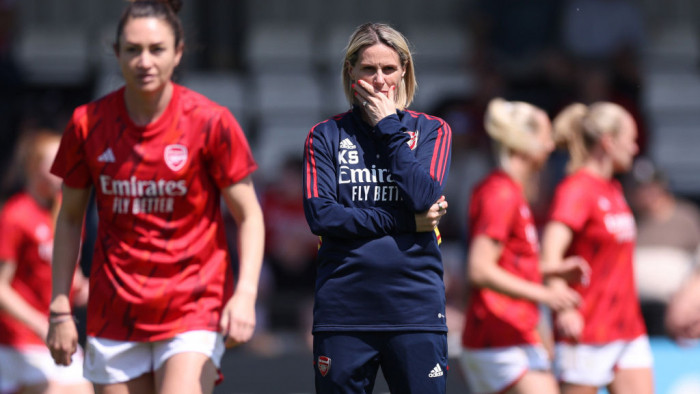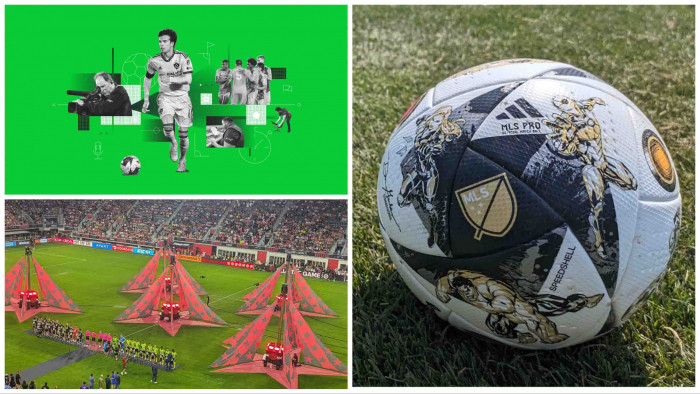It's all very well being fast, but being a strong swimmer, good with a sword and a skilled rider is just sickening. Heckle from your sofa, sure, but know what you're shouting about at least. Your Pentathlon cheat sheet awaits...
Athletes: 72
Golds up for grabs: 2
Olympic presence: Men 1912–present; women 2000–present.
Olympic Format: The pentathlon kicks off with a round-robin épée fencing tournament, and continues with a 200m freestyle swim, followed by show jumping and a combined run/shoot, in which the competitors take five shots at a fixed target, run 1000m, then repeat the procedure twice.
Contenders: East and central Europeans have dominated Olympic modern pentathlon, along with Sweden, which tops the medal table and can be expected to do so again. Britain’s Heather Fell has a shout in the women’s competition, having taken silver behind Germany’s Lena Schöneborn in Beijing. Aleksander Lesun and ergey Karyakin of Russia will be among the favourites for the men’s contest.
Past Champions: Sweden: 9 | Hungary: 9 | USSR /Russia: 8
Watch it: 11–12 August 2012, Handball Arena, Olympic Park (Fencing), Aquatics Centre, Olympic Park (Swimming), Greenwich Park, (Riding, Combined Running and Shooting). Catch the BBC’s coverage of the Olympic Games across 24 dedicated channels on freesat
..........................................................................................................................................................
THE BASICS
The structure of the pentathlon and the details of the events that comprise it have changed several times over the years. For London, the men’s and women’s events will both take place on a single day. The scoring system is based on a set of standard times and performances; a total score of 5000 points is considered ‘par’.
Fencing
In the opening discipline, every competitor has one sixty-second fencing bout with each of the others. The swords used are épées (see ‘Fencing’) and the bouts are sudden death, i.e. the first dueller to score a hit wins. If neither fencer wins the bout in the allotted time, both register a defeat. An Olympic pentathlete who wins 70 per cent of his or her fencing matches (in other words 25 out of 35 bouts), earns 1000 points. Deviations from that total are rewarded/punished to the tune of 24 points for every bout.
Swimming
Swimming is considered the hardest discipline for athletes to improve in substantially if they come late to the sport. As a result, many top pentathletes have a swimming background. Men and women both compete in 200m freestyle races, with the heats seeded according to personal best times. For both sexes, completing the course in 2min 30sec earns 1000 points. Deviations are punished/rewarded at the rate of 4 points for every third of a second.
Riding
For the show jumping, contestants are allotted horses in a draw made shortly before the event begins, the idea horses in a draw made shortly before the event begins, the idea being to test their ability to master an unfamiliar beast. The athletes being to test their ability to master an unfamiliar beast. The athletes then have twenty minutes to ride their new equestrian partners in a practice arena. The course itself must include twelve obstacles, one of which must be a double and one a triple jump. The fences may be up to 1.2m in height and at least five of them have to be. Points are awarded on the basis of a standard time for completion of the course, which varies according to its distance. A rider who achieves a clear round within the time limit earns 1200 points. Each additional second incurs a penalty of 4 points. If a competitor fails to complete the course within twice the standard time, he or she must stop riding, as must any rider who has fallen twice. They are then deducted 100 points for every obstacle they failed to negotiate. Other penalties include 20 points for each fault (knocking down part of an obstacle) and 40 points for every refusal to jump. If a horse baulks twice at the same jump, the rider must move on to the next one.
Combined Event
In 2008, the uipm combined the shooting and running disciplines into a new event, which closes each competition. It has a staggered start, the athletes being handicapped on the basis of the scores they have accumulated in the preceding events. The race begins with a run of about 20m to a shooting range, where each pentathlete has seventy seconds to hit five 59.5mm targets from a distance of 10m with an air pistol (or laser version). There is no limit to the number of shots competitors can fire within the time limit but they must keep their pistols in contact with the shooting table throughout the reloading procedure. They must also leave them in a safe position, i.e. open, unloaded and pointing at the target area. Each infringement of these rules results in a time penalty of ten seconds. These are paid on the spot: fire within the time limit but they must keep their pistols in contact with the shooting table throughout the reloading procedure. They must also leave them in a safe position, i.e. open, unloaded and pointing at the target area. Each infringement of these rules results in a time penalty of ten seconds. These are paid on the spot: guilty parties are held back from continuing the event until they have done their time. If athletes manage to hit all five targets within the allotted time, they can immediately set off on the first of three 1000m runs. If they fail to hit one or more of the targets, they have to wait until seventy seconds have elapsed before they can start running. There are no other penalties for missed targets – if you don’t hit all five, you might as well miss the lot. The shooting procedure is repeated after the first and second 1000m runs. The third run ends at the finishing line. As a result of the handicapping system, the first to cross is the winner of the entire competition.
Extracted from How to Watch the Olympics by David Goldblatt & Johnny Acton (Profile Books)(Image: Rex Features)
Latest
Related Reviews and Shortlists










